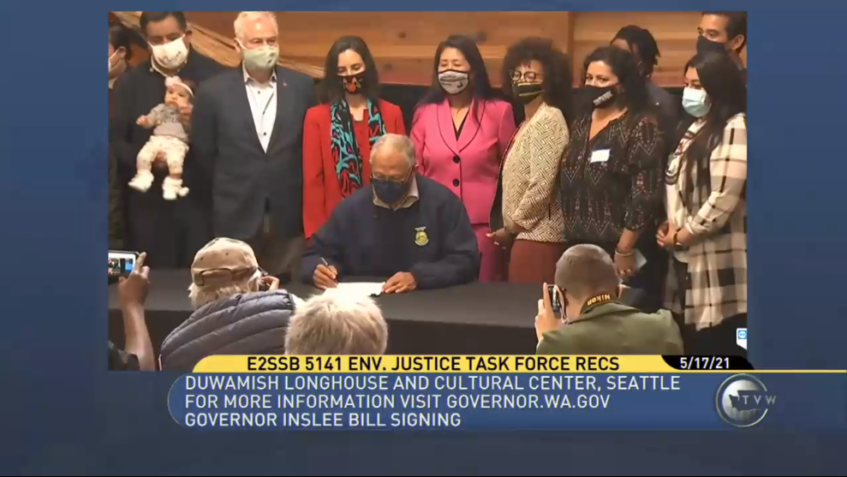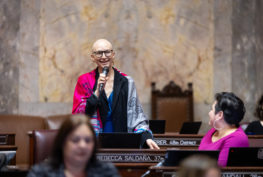May 17, 2021
OLYMPIA – Today Gov. Jay Inslee signed legislation that will reduce environmental health disparities and improve the health of all people in Washington state using principles of environmental justice. Senate Bill 5141, the Healthy Environment for All Act (HEAL Act), addresses the disproportionate exposure to environmental hazards suffered by Black, Indigenous, and other communities of color, along with low-income communities in neighborhoods across Washington state, putting them at higher risk of adverse health outcomes. This risk is further amplified for communities with pre-existing economic barriers and environmental risks. The HEAL Act, sponsored by Sen. Rebecca Saldaña (D-Seattle), implements recommendations from the Environmental Justice Task Force – established by the Legislature in 2019 – on how state agencies should incorporate environmental justice principles to reduce health disparities when implementing policies and programs. Environmental justice means the fair treatment and meaningful involvement of all people regardless of race, color, national origin, or income with respect to the development, implementation and enforcement of environmental laws, regulations, and policies. “This is a monumental step in our movement toward climate and environmental justice,” said Saldaña (D-Seattle). “It acknowledges that current and past policies have disproportionately caused harmful health outcomes in communities of color and low-income communities. But even more importantly, it requires covered agencies to take action with guidance and consultation from impacted communities via an environmental justice council. Environmental benefits and community engagement will be part of all environmental policies thanks to this bill.”” Saldaña’s bill establishes environmental justice requirements for seven state agencies, an interagency workgroup, and a permanent environmental justice council, the makeup of which includes a majority of representatives from impacted communities. It also sets timelines for guidance, recommendations, and implementation of environmental justice assessments, measurements, and public reporting of progress. “As we lead the recovery effort in the wake of the pandemic, we must also prioritize the health of our natural environment and address the disparate impacts that climate change has had on low-income people and communities of color,” said Sen. Liz Lovelett (D-Anacortes) a cosponsor of the bill. “We know that the climate crisis impacts every single Washingtonian, but by looking at solutions and investments through the lens of those most affected, we can develop strong policy that will guide the actions of our state agencies, undo historic and systemic harm, and benefit all of our state’s residents and environment for generations to come.” “None of this would have been possible without the leadership of environmental justice communities who volunteered their hours and expertise in the development of these policies and in advocating for the bill’s passage,” Saldaña said. She also thanked Sen. Reuven Carlyle (D-Seattle), Rep. Joe Fitzgibbon (D-West Seattle), Rep. Debra Lekanoff (D-Bow), and Rep. Kirsten Harris-Talley (D-Seattle) for their guidance and support through the legislative process.



